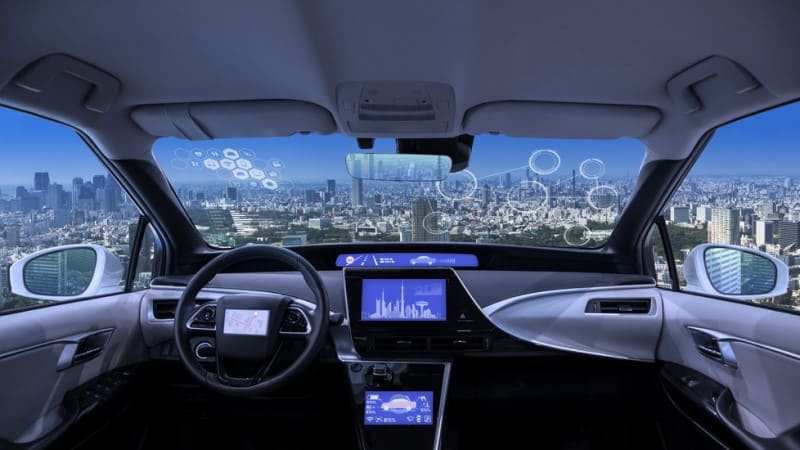- February 27, 2023
- By Nataly Hincapie
- In Engine Repair
- 2400
- 0

As cars become more advanced, the safety features they include also continue to improve. One such feature that has become increasingly popular is the rear vision system. A rear vision system, also known as a backup camera, is a safety device that enables drivers to see behind their vehicles, reducing the risk of accidents.
In this comprehensive guide, we will explore rear vision systems, including their features, benefits, and how they work.
A rear vision system is a safety feature that uses a camera mounted on the back of a vehicle to provide the driver with a view of what is behind them. The camera feeds the video to a display screen, typically located on the dashboard of the car.
Rear vision systems are becoming increasingly common in modern cars, with many manufacturers now including them as standard features.
Modern rear vision systems come with a range of features that enhance the driver’s experience and safety. Some of the features commonly found in rear vision systems include:
Parking lines are lines that are superimposed on the camera’s image, providing the driver with a visual guide for parking. The lines may be static or dynamic, meaning they move as the car turns its wheels.
A wide-angle view provides a broader view of the area behind the car, making it easier for drivers to see obstacles or other cars.
Night vision is a feature that uses infrared technology to provide a clear view of the area behind the car, even in low-light conditions.
Dynamic guidelines are lines that move as the driver turns the steering wheel. This feature makes it easier for drivers to back up into tight spaces.
Also Read: COMPREHENSIVE GUIDE TO VEHICLE MAINTENANCE FOR CAR OWNERS
Rear vision systems provide drivers with several benefits, including:
Rear vision systems increase safety by reducing the risk of accidents caused by blind spots or limited visibility.
The parking lines and wide-angle view provided by rear vision systems make it easier for drivers to park accurately and safely.
Rear vision systems are convenient for drivers, as they eliminate the need for the driver to turn around or rely on mirrors to see what is behind them.
Rear vision systems work by using a camera mounted on the back of the car. The camera captures an image of what is behind the car and sends it to a display screen on the dashboard.
When the driver engages in reverse gear, the rear vision system automatically activates, providing the driver with a clear view of what is behind them.
Rear vision systems can be installed in most cars, regardless of their age or make. However, the installation process can be complex and should be carried out by a qualified professional.
The installation process involves mounting the camera on the back of the car, wiring it to the car’s electrical system, and installing the display screen on the dashboard.
Rear vision systems are an essential safety feature that provides drivers with a clear view of what is behind them. The features and benefits of rear vision systems make them a worthwhile investment for any driver.
If you are considering installing a rear vision system in your car, make sure to have it done by a qualified professional to ensure that it is installed correctly and functions correctly.
By reading this comprehensive guide, we hope you have gained a better understanding of rear vision systems and their benefits.































